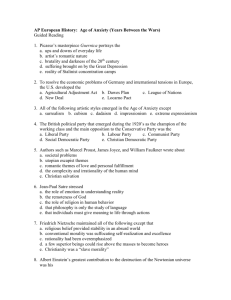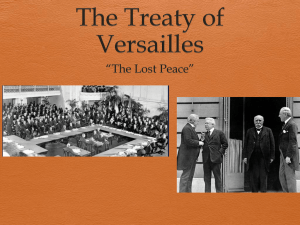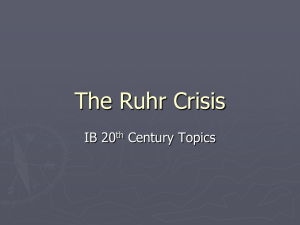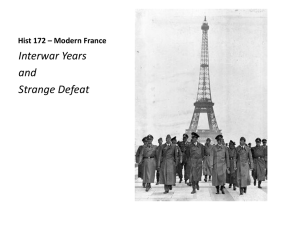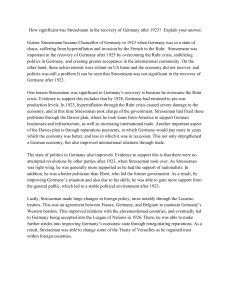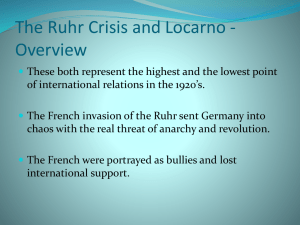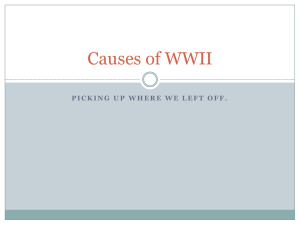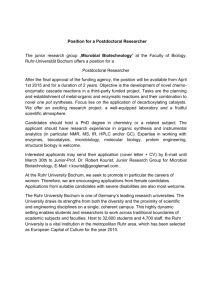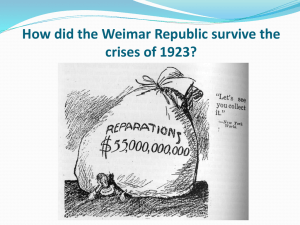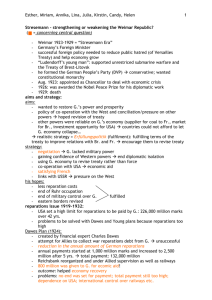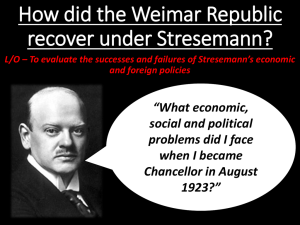Ruhr Crisis and LOCARNO TREATY
advertisement
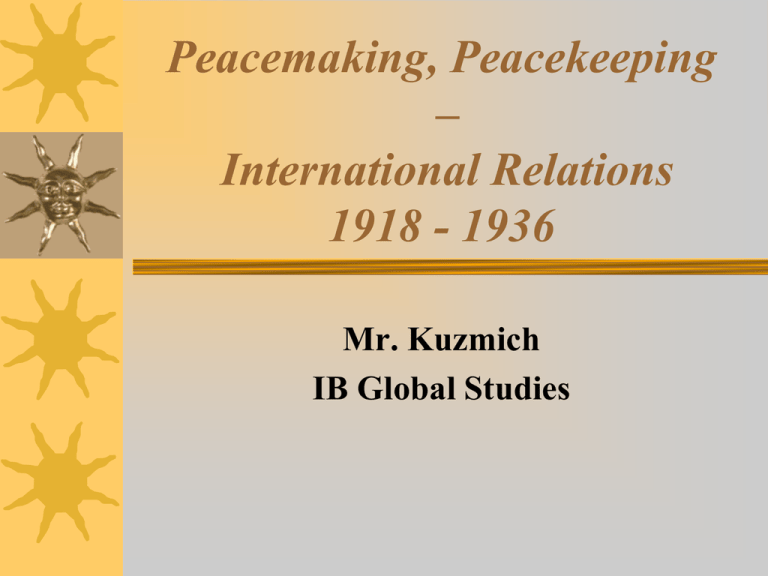
Peacemaking, Peacekeeping – International Relations 1918 - 1936 Mr. Kuzmich IB Global Studies The Ruhr Crisis - 1923 German Weimar Republic vs. Reparations Commission • 1922 – Germany defaulted on coal and timber deliveries. • Reparations Commission ordered the occupation of the Ruhr by French and Belgian troops. The Ruhr Crisis - 1923 • French Premier Raymond Poincare reluctant to occupy. • Reasons to oppose: • • • • Excessive Antagonistic Opposed military action Focus on rebuilding The Ruhr Crisis - 1923 • Reasons for occupation: • Frustrated by British inaction • Frustrated by Germany’s unwillingness to pay reparations • Bad precedent! The Ruhr Crisis - 1924 • Poincare orders the occupation in January, 1924 • To protect the sanctity of the Treaty of Versailles The Ruhr Crisis - 1924 • Called the “Ruhrkampf” by the Germans • • • • • • • • Passive resistance Sabotage Hyper-inflation Unemployment Strikes State of Emergency Riots and civil unrest Coup d’etat attempts Dawes Plan • Charles Dawes – Vice President of the US • Substantially lowered the German reparations • French troops leave Germany by 1925 • Dawes wins Nobel Peace Prize in 1925 Locarno • Locarno treaties (1925) • Seven separate agreements • Allowed for normalizing of European relations • Franco-German reconciliation • Recognized all post-war borders • German invitation to join League of Nations The Locarno Spring - 1925 • Gustav Stresemann • German Chancellor and Foreign Minister • Reconciliation w/France • Nobel Peace Prize with Aristide Briand of France in 1926 • Died in October, 1929 Realized or Obstructed? Stresemann – Austen Chamberlain - Briand Locarno Source Readings • Course Companion - Pages 60-65 • Kissinger, Henry. Diplomacy. NY, 1994. Pages 271-279 • Howarth – Page 50 • Fifty Major Documents of the 20th Century: • Locarno Pact – Pages 61-64
